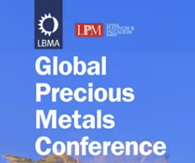Cold War Lite for the Rouble
"It is clearly the most serious East-West confrontation since the end of the Cold War," Baker said on Meet the Press. "For someone who was the last US-Secretary of State during the Cold War, it's very disappointing to me to see that we're moving now from cooperation with Russia to confrontation again. The risks are very substantial. I think we are pretty much in a Cold War Lite, right now."
"To make it unmistakably clear, no one among us wishes it will come to such measures. But we would all be ready for them and determined if they become unavoidable. If Russia continues with its policy of the past weeks, then this wouldn't only be a disaster for Ukraine. We as neighboring states would also regard this as a threat," Ms. Merkel warned.
"In the hearts and minds of people, Crimea has always been and remains an inseparable part of Russia." Putin later told a flag-waving rally in Red Square. "Crimea has returned to home port."
"The so-called authorities in Kiev have stolen power in a coup, opening the way for extremists who would stop at nothing. Our Western partners headed by the United States prefer not to be guided by international law in their practical policies, but by the rule of the gun. They have come to believe in their exceptional-ism and their sense of being the chosen ones. That they can decide the destinies of the world, that it is only them who can be right."
"We do not want a military organization to be bossing us around near our fence, next to our home or in our historical territories. You know, I cannot imagine us going to Sevastopol as Nato sailors' guests."
"Fears have been expressed in Kiev that Russia might move on the Russian-speaking eastern parts of Ukraine, where there has been tension between some Russian-speakers and the new authorities. Don't believe those who try to frighten you with Russia and who scream that other regions will follow after Crimea. We do not want a partition of Ukraine."
"We are not going to be getting into a military excursion in Ukraine. What we are going to do is mobilize all of our diplomatic resources to make sure that we've got a strong international correlation that sends a clear message."
"Russian companies should be registered on the territory of our nation, in our country and have a transparent ownership structure. I am certain that this is also in your interests," Putin told the Oligarchs.
"If the US chooses to freeze our assets, then our equities and liabilities in Dollars will also be frozen. This means that our banks and businesses will not return the loans to American partners."
"[However,] the Rouble has been deteriorating in a way that clearly has a major effect on the Russian economy, which you know is not doing well. If that happens, there will be a response from Russia, but only in that case," Greenspan said.
"If the sanctions only affect the accounts of certain individuals, enterprises, operations or products, this will be a mild scenario," Kudrin said.












 Email us
Email us